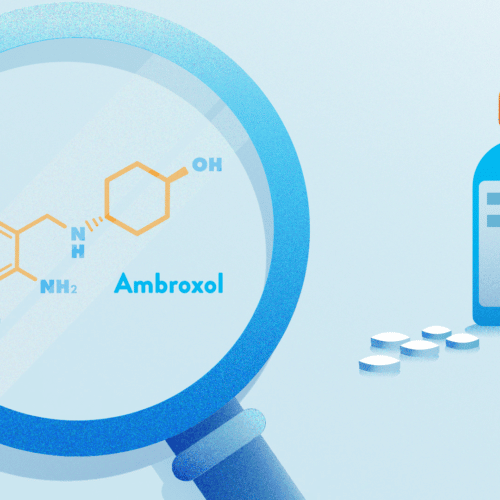2024: research highlights of last year and the year ahead

Last year proved to be a busy year for the research team at Cure Parkinson’s; in addition to the announcement of some very encouraging results from completed clinical trials, we’ve also funded a number of promising new projects focused on disease modification – changing or slowing down the progression of Parkinson’s.
Key events in 2023 of research funded by Cure Parkinson’s:
The lixisenatide results
In September, researchers presented the preliminary results of a clinical trial conducted in France that was co-funded by Cure Parkinson’s and the French government. The study involved 156 people with Parkinson’s, who were either treated with the diabetes drug lixisenatide or the placebo ‘dummy’ drug, for 12 months. The results of the study demonstrated that lixisenatide significantly slowed the progression of motor symptoms in people with Parkinson’s over the course of the trial, while the placebo-treated individuals continued to experience progression of their symptoms.
Lixisenatide is a drug that is used in the treatment of Type 2 diabetes and, following prioritisation by the International Linked Clinical Trials (iLCT) committee, Cure Parkinson’s has been investigating lixisenatide as a potential treatment of Parkinson’s. Lixisenatide belongs to a class of drugs called GLP-1R agonists, and is very similar to another drug that Cure Parkinson’s has been investigating for Parkinson’s called exenatide.
Cure Parkinson’s is now working with the trial investigators at the Universities of Toulouse and Bordeaux to further the development of lixisenatide for people with Parkinson’s.
The UP-study (UDCA in Parkinson’s) results
UDCA is a medication that is used in the treatment of liver disease and for breaking down gall stones. In 2013, researchers led by Professor Oliver Bandmann at Sheffield University identified UDCA in a drug screening study as an agent that ‘rescued’ models of Parkinson’s in the laboratory; and in 2015, our iLCT committee prioritised UDCA for clinical testing as a possible disease modifying treatment for people with Parkinson’s. Cure Parkinson’s funded Professor Bandmann to conduct the UP Study (UDCA in Parkinson’s) – a phase 2a clinical trial that assessed the safety and tolerability of UDCA in 30 people with Parkinson’s for six months. The drug was found to be well tolerated by the clinical trial participants, as well as displaying encouraging results in exploratory assessments of efficacy, including improvements in neuronal function based on brain imaging, and assessing movement results using wearable measurement devices. Cure Parkinson’s is in discussions with Professor Bandmann to determine the best way to advance this encouraging research, and we anticipate keeping our supporters informed of further developments.
The Edmund J. Safra Accelerating Clinical Trials for Parkinson’s Disease (EJS ACT-PD) preparations
Following on from some initial funding by Cure Parkinson’s, the Edmund J. Safra Accelerating Clinical Trials for Parkinson’s Disease (EJS ACT-PD) initiative was established to build a multi-arm, multi-stage (or MAMS) clinical trials platform for the continuous testing of potentially disease-modifying treatments for Parkinson’s. This revolutionary project is seeking to mirror the success that similar MAMS platforms have had in improving the standard of care in other medical fields such as oncology and multiple sclerosis (MS). MAMS trials make it possible to test potential new treatments much faster by testing multiple drugs at once – and comparing them with a single placebo control group. Drugs that show signs of efficacy continue in the trial with potentially more people joining the existing participants; and trials run consecutively between phases so what would normally be two separate trials are delivered in one. There is also the added flexibility to stop drugs that don’t show anticipated efficacy in favour of other new drugs joining the platform that require testing.
The EJS ACT-PD project is being led by Professors Camille Carroll, Sonia Gandhi and Tom Foltynie. A protocol for the MAMS platform for Parkinson’s is being finalised and the three initial drugs proposed to be tested within the platform have been prioritised by Cure Parkinson’s iLCT committee. We anticipate starting recruitment of people with Parkinson’s by the end of the year.
New preclinical studies underway
During 2023, our independent Research Committee – a group of academics and people living with Parkinson’s who evaluate the applications for funding that we receive during the year – recommended a number of studies to our Trustees for funding.
A special award for Dr Richard Wyse
In 2023, another special achievement for Cure Parkinson’s was the recognition of Dr. Richard Wyse, our Director of Clinical Development, who was appointed as a Member of the Order of the British Empire (MBE) in His Majesty The King’s New Year’s Honours List. This prestigious acknowledgment is in honor of his contributions to medicine in the field of Parkinson’s. Richard has been instrumental in driving forward much of the research activities of the charity – particularly the iLCT programme – and we are extremely proud that he has been recognised for his efforts in this way.
Key research events on the horizon in 2024:
Some important results from GLP-1R agonist clinical trials
This year, we will learn the results of a number of clinical trials that have been testing a group of diabetes medicines called GLP-1R agonists in people with Parkinson’s. First, the results of the large phase 3 clinical trial of exenatide that has been conducted in the UK are expected to be announced in the second half of 2024. This phase 3 trial has run for 96 weeks, assessing the weekly treatment of 200 people with Parkinson’s with exenatide against the placebo ‘dummy’ drug as the comparison. Cure Parkinson’s have funded two key elements of this trial focusing on brain imaging and additional movement assessments using wearable technology.
We are also expecting to see the results of another clinical trial of exenatide in Parkinson’s that has been conducted in Stockholm, Sweden. Professor Per Svenningsson and colleagues are assessing the impact of 12 months of exenatide treatment in 60 people with Parkinson’s using both clinical measurements and brain imaging, in this phase 2 trial. The results are expected towards the middle part of the year.
In 2024 we anticipate the publication of results from other GLP-1 receptor agonist studies in Parkinson’s, which include the full lixisenatide results as mentioned above, as well as the phase 2 liraglutide trial results conducted in California – both of which will contribute to the growing body of evidence in this crucial area of Parkinson’s research.
Cure Parkinson’s research update events
In 2024, we will be continuing our regular public research events. This includes our biannual Research Update meetings with the next to be held on 17th April at the Royal Society of Medicine, London (please save the date!) and our quarterly webinars in collaboration with the Journal of Parkinson’s Disease and Van Andel Institute:
In addition to these events, we are supporting a 3-day research conference in June 2024 in Montreal (Canada) which will bring together experts from around the world to discuss new developments in research focused on the genetic form of Parkinson’s associated with variations in the GBA1 gene.
Cure Parkinson’s is collaborating in the funding of a clinical trial investigating the potential of the cough medicine, ambroxol. This groundbreaking study is focused on individuals linked to the genetic form of Parkinson’s.
Further developments of the ASPro-PD ambroxol clinical trial
In early 2023, Cure Parkinson’s and partners announced funding for the phase 3 clinical trial to evaluate the disease modifying potential of the cough medicine ambroxol in people with Parkinson’s. One of the challenges in setting up this study has been the reformulation of the drug to be tested. This process has taken longer than expected which has led to delays in the starting of recruitment. We will provide updates as they become available, and Cure Parkinson’s is committed to seeing ambroxol tested as a potentially disease-modifying treatment for Parkinson’s.
We are looking forward to the busy year ahead with research initiatives, as we progress towards identifying therapies that can modify the course of Parkinson’s.
Our Director of Research, Dr Simon Stott, was featured in the January No Silver 4 PD webinar to further discuss Parkinson’s research takeaways for 2023.




